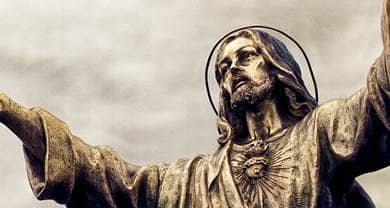- Trending:
- Pope Leo Xiv
- |
- Israel
- |
- Trump
- |
- Social Justice
- |
- Peace
- |
- Love

RELIGION LIBRARY
Lutheran
Worship and Devotion in Daily Life
The two key facets of the history of Lutheranism needed to grasp the shape of everyday Lutheran life are Luther's concept of "vocation," and the influence in Lutheranism of pietism.
The key insight of Luther's theology is that salvation is a one-way affair. It is a gift from God to humans. There is nothing humans can do to prompt or earn this gift. One immediate consequence of this theology is to undermine the idea of a priesthood. Priests are intermediaries who stand between the divine and people and advocate on behalf of people, often through performing sacrifices. But if salvation does not depend at all on advocacy and sacrifices, there is no need for priests. Or, as Luther expressed it, every Christian is equally a priest (this is the "priesthood of all believers"). Everyone who has received the gift of forgiveness stands in immediate contact with the divine. It is for this reason that Luther translated the Bible into German (the language of the people), and for this reason Lutherans have ministers instead of priests (different people have different gifts from God for the sake of God's work), but no one has a special status with God).
One immediate ramification of this one-way grace was the closing of monasteries; the scheduled regime of works in a monastery get you nowhere with God. Another is a massive shift in the meaning of the word "vocation." We tend to think of a vocation (from the Latin for "calling") as a "call" into ministry. And so did medievals. But for Luther, every life role could be a calling. God needs preachers, but God also needs homemakers and bakers and bankers to serve the body of Christ. And God needs parents and colleagues and friends to serve fellow Christians and neighbors. Each of these is a vocation. (This will result, especially in its Calvinist form, in what the sociologist Max Weber calls the "Protestant work ethic," which forms a basis of the shift from a feudal society to a capitalist one.) What this means is that, for Lutherans, daily life does not necessarily include different kinds of activities, some religious and some non-religious, but daily activities have a different tone. They are not common and casual but divine, and so are to be done with seriousness and gusto.
Pietism has also influenced Lutheranism. Pietism was a movement originating in Germany. Pietism is an attempt to turn the main focus of religion from correct belief or doctrine to a deep experience of God's love. It originated in Germany with Philip Spener (1635-1705) and Auguste Francke (1663-1727). They encouraged their followers to attend their regular Lutheran churches for worship, but they instituted small cells ("collegia pietatis") that met regularly for Bible study and to encourage each other in the life of faith. Throughout their history, German Lutherans have also been influenced by the practices of pietist hymn singing, Bible study, and love feasts. And these traditions have emigrated as Germans have emigrated. In contemporary North America these traditions have taken the form, in some Lutheran churches, of an emphasis on developing a personal life of prayer and establishing weekly Bible studies.










